Legavision network meets in Brussels (13-14 oct. 2022)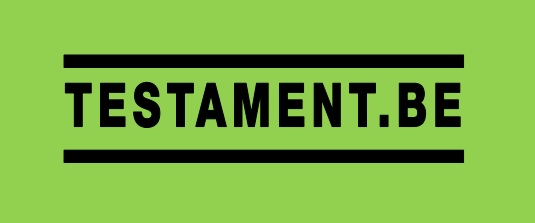 The international network Legavision was launched in order to strengthen opportunities of information exchange between national campaigns dedicated to the promotion of legacies for non-profit organisations. This international platform offers a unique opportunity for non-profit legacy marketeers to exchange expertise on the best way to manage collective campaigns.
The international network Legavision was launched in order to strengthen opportunities of information exchange between national campaigns dedicated to the promotion of legacies for non-profit organisations. This international platform offers a unique opportunity for non-profit legacy marketeers to exchange expertise on the best way to manage collective campaigns.
The next Legavision meeting is due to take place in Brussels (13-14 oct. 2022).
Testament.be : somehow successfull, often criticized by Belgian fundraisers
Most national campaigns are controlled by (or have close links with) the local national umbrella of non-commercial fundraising organisations. This is not the case in Belgium, where a private agency using a non-profit legal status (a.s.b.l. – ‘association sans but lucratif’) controls the national Testament.be campaign.
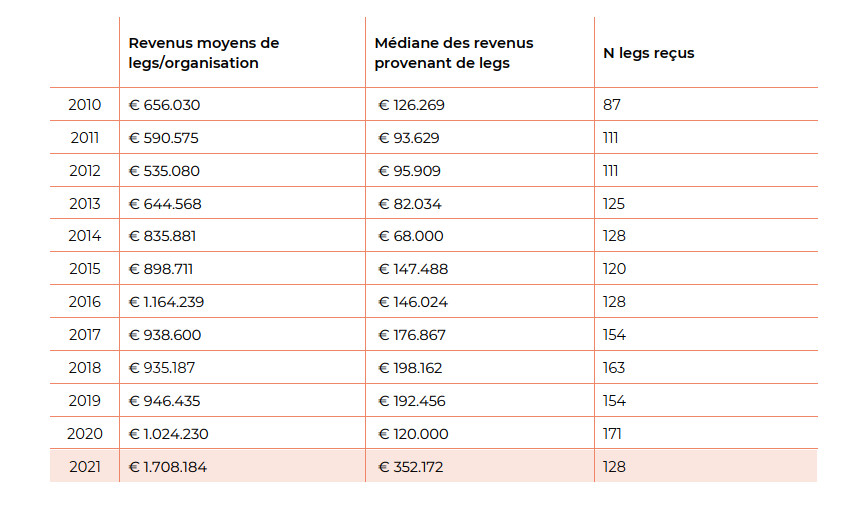 Legacy marketeers from other European countries often feel impressed by the financial success the Belgian legacy promotion agency (annual budget 1.4 million €), as well as by the strong growth of legacies in Belgium.
Legacy marketeers from other European countries often feel impressed by the financial success the Belgian legacy promotion agency (annual budget 1.4 million €), as well as by the strong growth of legacies in Belgium.
The Legavision meeting in Brussels will perhaps celebrate once again what experts outside Belgium often describe as the ‘outstanding success’ of the Belgian national campaign.
Unfortunately little information has been dissaminated through the Legavision network about the dissatisfaction of many small and middle-range charities, and of larger institutions who interrupted their collaboration with Testament.be: Unicef, Greenpeace, Belgian Red Cross (frenchspeaking community), WWF, Amnesty (frenchspeaking community), etc.
1a. Fundraisers Forum
This paper presents some of the questions raised by the methods used by this agency. It is edited by the Fundraisers Forum (www.fundraisers.be), a small-scale non-commercial unit active in exchanging expertise between Belgian fundraisers. We are a member of EFA (European Fundraisers Association) and focus part of our activities on legacy marketing issues (link).
Regarding Testament.be this paper summarizes the conclusions of a report based on interviews, workshops and webinars involving some seventy charities (link).
1b. A country without strong national umbrella of fundraising organisations
Belgium is the only West-European country where the local charities have never launched a strong national umbrella of non-commercial fundraising organisations - similar to France Générosité, Goede Doelen Nederland, Chartered Institute of Fundraising and many others - that can address all common interests of their members.
The only Belgian platform of fundraising organisations, called AERF – ‘Association pour une Ethique en Récolte de Fonds’ is mainly coordinating self-regulation measures related to fundraising ethics, and has very little resources (+/- 100.000 € annual budget compared to 1,4 million € for Testament.be).
This is why in some way, as Belgian charities have never shown in recent years any motivation to support collective projects, one could praise the owners of Testament.be for deciding to fill a gap and launch the present private ‘national legacy campaign’.
The success story of Testament.be could not be exported elsewhere in Europe. A similar commercial campaign showing so little respect for some fundamental values of the non-profit sector (fair governance rules, fees according to the 'legacy potential' of the participating charities, financial transparency) couldn't win a similar dominant position in other countries. Unlike in Belgium, elsewhere in Europe charities do rely on a strong national umbrella of fundraising charities that can resist any risk of excessive privatization of collective non-profit campaigns.
2a. A commercial management culture hidden behind a charity-status
Testament.be is formally run by a charity (asbl), and is often presented by it’s staff as serving 'a community of members’.
A reality check indicates this charity works under the authority of a Board and a General Assembly that are mainly controlled by the founders who are/were members of the staff, or by their close contacts.
The +/- 140 fundraising charities that Testament.be often describe as ‘members’ of this structure are just clients : they have no control on the general assembly, the Board, the budget, the accounts as well as on the main strategical choices.
Testament.be has grown like many commercial agencies by using fairly aggressive selling techniques, although its legal charity status (asbl – Association sans but lucratif) presents at first sight a soft and friendly look.
Founders (including the founder recruiting it’s own daughter), staff, suppliers and office are mainly located in and around the city of Bruges.
No doubt the dedication and expertise of various members of the team is appreciated by many charities. No doubt this structure has played an active role in the growth of the Belgian legacy market. This should not prevent a critical analysis of some unacceptable methods.
2b. Because legacy marketing campaigns lack efficient KPI’s, too many charities adopt a ‘follow the crowd’ attitude
All over Europe national platforms in charge of collective legacy promotion campaigns are confronted with the issue of convincing their member charities to make recurrent investments in collective advertising, although the long term impact of these actions is difficult to evaluate with traditional KPI’s. Proving the R.O.I. of investments in street fundraising or telemarketing is much easier.
But on the other hand fundraisers are being asked not to neglect any serious opportunity to attract more legacies.
This permanent gap between the necessity of investing in legacy marketing and the lack of efficient KPI’s is often exploited by commercial agencies, offering a variety of advertising opportunities in the printed press, in printed ‘Gifts & Legacies' guides and other similar products.
For example in Belgium charities invest every year a lot of money in a commercial product called ‘Gifts & Legacies Guide’ that is distributed to all notaries, although no serious evaluation of the impact of this book has ever been made.
We clearly felt through interviews with charities that the legacy advertisement expenses they invest in the press, in the annual ‘Gifts & Legacies Guide’ and even in the Testament.be campaign are often at least partly decided because of a sheep-like behavior ('follow the herd') : they feel safer to spend money in publications and campaigns where other major charities decided to be present.
2c. Linking the annual Testament.be fee to the overall income of each charity is very unfair
National campaigns in neighbouring countries (Remember A Charity, Toegift in the Netherlands, etc.) accept to adapt their fee to what can be defined as the ‘legacy potential’ of each charity: the fee is based on the average income during the last three years of all legacies, or on the global income from donors.
On the contrary Testament.be imposes a fee based on the overall income of each charity. This system forces organisations with large subsidies but no or little income from legacies to pay an expensive annuel subscription that is out of proportion compared with their low ‘legacy potential’ in the coming years.
This unfair system results in Testament.be inviting the participating charities to forget the essential principle of solidarity between large and small non-profit organisations.
2d. No other choice then paying for the expensive ‘full package’ of services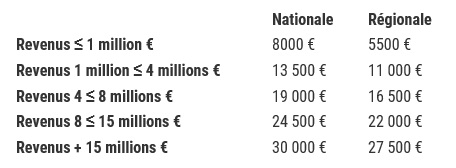 The Belgian campaign is running a variety of services : a national advertising campaign, legal advice, training, lead generation (identification of thousands of leads whose names are distributed to the charities) and events.
The Belgian campaign is running a variety of services : a national advertising campaign, legal advice, training, lead generation (identification of thousands of leads whose names are distributed to the charities) and events.
Every participating charity, large or small, is forced to pay for the ‘full package’ of all these services, even if parts of this offer are not adapted to its current needs.
This is why the fees of the Belgian campaign are far more expensive for participating charities then in other countries, although most local charities in (little) Belgium are quite smaller then elsewhere.
Elsewhere in Europe charities feel free to pay or not for a variety of services that are delivered by different commercial or non-commercial organisations.
2e. Forcing charities to accept a 'full package' contract helps creating long term dependance
We believe this very unfair ‘full package’ offer of Testament.be is somehow a clever choice that can be compared with the marketing strategy of major mobile phone companies : by offering ‘full packages’ contracts including 'mobile phone + Internet & TV connection' to their clients, mobile companies discovered that these contracts proved to be much more efficient in binding their customers for a long period.
We regret the owners of the Testament.be keep on refusing to stop linking the fee to the overall income of the charity (2c) , and to modify their ‘full package’ offer (2d).
2f. ’Lead generation’, mainly an efficient tool that helps binding the charities to Testament.be ?
Although Rob Cope (Remember A charity) succeeded in launching creative advertising campaigns in the U.K., he also was aware that many participating charities often felt more interested by other actions that could deliver short term and tangible results for each organisation. But he remained successfull in maintaining strong investments in creative advertising campaigns.
Instead of concentrating, like in the U.K., major resources in efficient advertising campaigns, the owners of Testament.be seem more interested in investing the largest budgets in actions that help binding the participating charities to their agency.
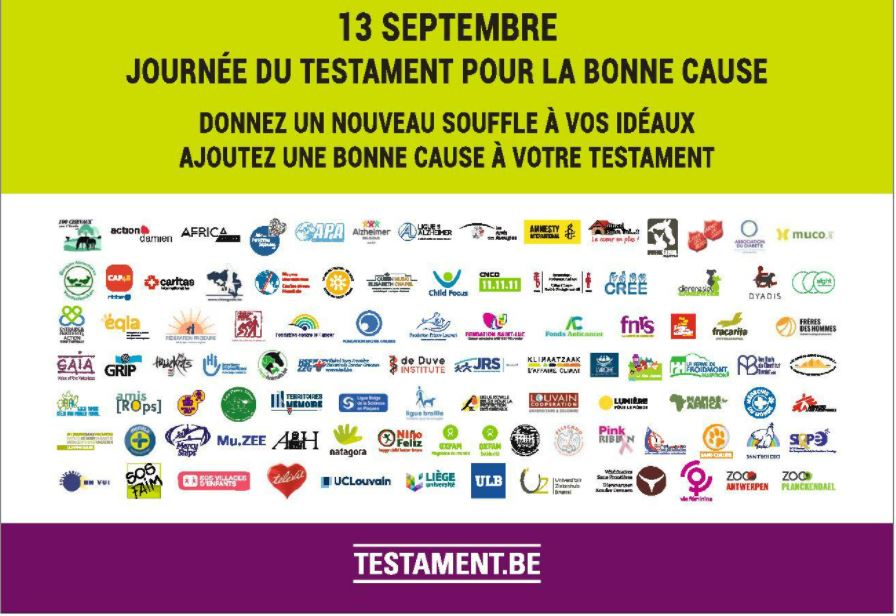 A first example illustrating this strategical choice appears through the central message of most printed material, where Testament.be often publishes the long list of all participating charities.
A first example illustrating this strategical choice appears through the central message of most printed material, where Testament.be often publishes the long list of all participating charities.
The impact of these ads on the public is probably very poor compared to the excellent creative ads of ‘Remember A Charity’ and various other european campaigns, but they offer the participating charities an immediate ‘feel good’ feeling, and reminds them that not participating to this national campaign means their name being scrapped from all advertisement material.
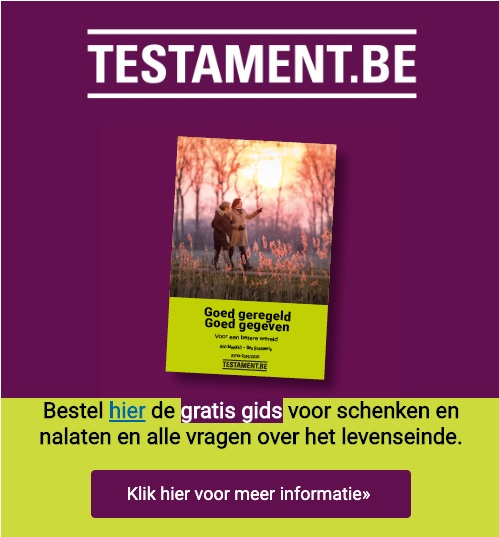 A second example is related tot the huge digital marketing budget spent in recruiting thousands of leads (addresses of people who seem interested in leaving a legacy) that are distributed to the participating charities.
A second example is related tot the huge digital marketing budget spent in recruiting thousands of leads (addresses of people who seem interested in leaving a legacy) that are distributed to the participating charities.
We believe these costly expenses in digital marketing, producing more then 20.000 new leads every year, are probably far less efficient compared with the creative advertising campaigns launched in other european countries, as the main message of the Belgian ad is not referring to generosity or leaving a legacy to charities, but simply offers a free ‘Legacy guide’ with legal advice.
We also believe charities should feel ethical concerns for being involved through this huge digital marketing campaign in very massive and recurrent emailing campaigns, producing lots of SPAM messages, targeting Belgian people partly with the help of digital list-brokers based elsewhere in Europe who seem to have little respect for GDPR regulations.
Although many charities feel they miss any serious evaluation of their quality of the leads they receive, at the end the same ‘follow the herd’ attitude seems to convince them to avoid interrupting their participation and have their name scrapped from these recurrent ads that are so strongly promoted.
The owners of the Belgian campaign appear through these examples to be more clever in developing services that will bind the participating charities to their agency then in producing creative messages targeting in the most efficient way the Belgian population.
Privatization of fundraising services can be efficient and fair under certain conditions
Belgian fundraising organisations feel happy and safe to collaborate with various commercial fundraising agencies (direct mail, street fundraising, telemarketing…) because of two main reasons:
- the efficiency of these commercial partners can be measured with various KPI’s
- various commercial agencies are offering similar services, allowing comparison and choosing when necessary another partner.
On the contrary the very dominant position of Testament.be - sometimes confirmed by the arrogant attitude of the founders/owners of the agency - do not inspire similar positive thoughts among many Belgian legacy fundraisers.
Poor governance
When informed about the governance rules prevailing in neighbouring countries (Remember A Charity, Toegift in the Netherlands, etc.) Belgian fundraisers clearly express their preference for the democratic umbrellas active in most european countries (U.K., Netherlands, etc.), allowing financial transparency, good governance under control of the participating charities, and a fair fee system adapted to the needs and the legacy potential of large as well as small charities.
What about the expectations of our stakeholders ?
Testament.be is a good example of how non-profit organisations can grow very quickly by adopting a set of hard commercial practises, while ignoring essential values that should be shared by all charities : good governance, equal treatment and solidarity between charities, financial transparency, etc.
Maybe charities should ask their stakeholders (members of general assembly, donors, volunteers) to what extent they feel comfortable with the present privatisation, under the authority of a single dominant actor, of a strategical activity that most charities outside Belgium prefer to keep under their collective control.
Post scriptum - We are fully aware that the expertise and dedication of the Testament.be staff, as well as the quality of some services offered, could have been more clearly underlined in this paper.
For more information please contact Hugues d'Ydewalle - Coordinator Fundraisers Forum - info<at>fundraisers.be
 Sessions d’information juridique
Sessions d’information juridique
L'opportunité d'un investissement récurrent de votre organisation dans la campagne Testament.be vous amène à évaluer l’efficacité des principaux services offerts. La campagne belge a ainsi testé diverses diverses formules en matière d'événements de remerciement auxquels les sympathisants les plus fidèles des organisations affiliées ont pu être conviés.
Une meilleure appréciation de leurs atouts et limites pourrait contribuer à en adapter le format en tenant davantage compte des recommandations des organisations concernées.
Testament.be a expérimenté différents formats d’événements qui furent organisés au niveau national ou au plan régional: 'Salon du Testament', 'Tournée généreuse', etc.
Les premières éditions, à vocation essentiellement informative, ont été structurées autour de trois axes:
- exposés juridiques,
- possibilité de consultation gratuite auprès de notaires,
- stands d’information des diverses organisations.
-> Lire aussi: 'Tournée Généreuse': promotion des legs d'intérêt général'
 Plusieurs méthodes de mobilisation des participants ont été expérimentées au cours des dernières années: promotion de l’événement dans les médias (offre d’entrées gratuites), invitations adressées aux particuliers qui avaient commandé le Guide des legs, invitations adressées par les organisations à leurs ‘prospects Legs’.
Plusieurs méthodes de mobilisation des participants ont été expérimentées au cours des dernières années: promotion de l’événement dans les médias (offre d’entrées gratuites), invitations adressées aux particuliers qui avaient commandé le Guide des legs, invitations adressées par les organisations à leurs ‘prospects Legs’.
La dernière rencontre (Africa Museum, décembre 2018), de même que l’événement ’Floralies gantoises’ prévu en mai 2020 et annulé du fait de la crise Covid-19, entendaient accentuer une nouvelle dimension, sous la forme d’un remerciement adressé par les organisations à leurs sympathisants les plus fidèles.
Un ciblage pertinent
Comme indiqué ailleurs, c'est surtout grâce au travers d'actions de sensibilisation qui ciblent directement leurs sympathisants que la plupart des organisations renforcent leurs opportunités de mobilisation de candidats testateurs.
Les investissements en campagnes publicitaires payantes s’adressent à un public plus large et produisent souvent un impact plus faible.
L’efficacité probable des événements proposés par Testament.be tient donc au fait qu’ils permettent aux organisations d’inviter leurs testateurs potentiels à une action de sensibilisation ‘Legs’ informative, agréable et de qualité professionnelle.
Mutualisation des ressources
La gestion relativement complexe de ce type de rencontres (mobilisation de notaires, promotion, logistique, etc.) ne permet guère aux nombreuses organisations de taille moyenne d'organiser ce type de rencontre.
Elles ont dès lors intérêt à mutualiser leurs ressources et à choisir un opérateur, tel Testament.be, chargé de sa mise en oeuvre.
Des résultats significatifs en termes de participants
Le premier 'Salon du Testament' (BOZAR) a connu un incontestable succès de foule, de même que certaines éditions régionales organisées sous le label 'Tournée Généreuse'.
L'édition nationale qui fut intégrée au Salon Zenith (60+) du Heysel, s'est par comtre révélée très décevante.
L'événement Africa Museum de décembre 2018 a réuni quelque 2.500 participants, invités tant par les diverses organisations caritatives ainsi que par Testament.be sur base du fichier des personnes ayant commandé le Guide.
Les consultations juridiques gratuites auprès des notaires y ont recueilli un franc succès.
Echec partiel de l’offre de visibilité sous forme de stands
L’historique des rencontres nationales et régionales proposées par Testament.be laisse entrevoir un bilan globalement positif, qui masque toutefois des échecs partiels, surtout au détriment des organisations à faible notoriété.
Par fidélité à l’option de ‘package unique de services identiques' offerts à l’ensemble des organisations affiliées, Testament.be se devait de veiller à ce que toutes puissent bénéficier d’une visibilité équivalente lors des événements nationaux (Bozar, Salon Zénith du Heysel) ou dans le cadre de certains événements régionaux: mise à disposition d'un stand, mention sur le catalogue, etc.
Il ressort de nos enquêtes que les institutions à haut Potentiel Legs y ont eu en réalité un bien plus grand nombre de contacts directs.
Plus nombreuses, les organisations de taille plus modeste ont souvent constaté que la visibilité offerte sous forme d’un stand s’avérait peu efficace, dès lors que les participants s’intéressaient davantage aux exposés juridiques qu’aux possibilités de découvrir, rapidement, dans l’ère réservée aux stands, nombre associations qui leur étaient inconnues. Ce constat s’est avéré encore plus évident lorsque des organisations à faible notoriété étaient invitées à animer un stand dans le cadre d'un événement en province.
Format désormais davantage orienté ‘Merci’: une option peut-être efficace, mais pas nécessairement éthique
Après l’incontestable succès de l’événement Africa Museum (2018) en termes de nombre de participants, Testament.be s'est orienté vers un format plus explicitement orienté 'Merci' dans le cadre de la rencontre Floralies 2020 qui aurait du se tenir à Gand si la crise Covid n'en avait provoqué l'annullation.
Le court descriptif de cette nouvelle édition propose un concept qui s’apparente essentiellement à un cadeau offert par les organisations caritatives à leurs sympathisants:
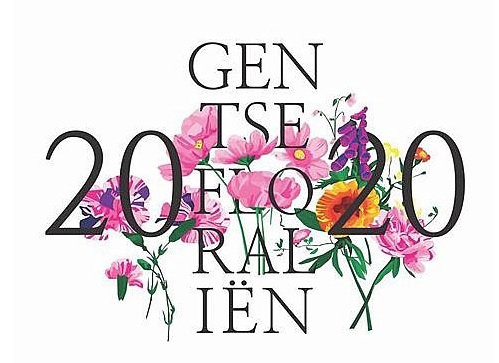 ‘Événement de remerciement Floralies les 5-6-7 mai 2020 à Gand
‘Événement de remerciement Floralies les 5-6-7 mai 2020 à Gand
Les bonnes causes couvrent leurs candidats testateurs de fleurs, au propre comme au figuré !
Invitez également vos bénévoles et volontaires estimés, vos collègues enthousiastes, les membres intéressés du Conseil d’administration…
Ne sont-ils pas les premiers et les plus fidèles ambassadeurs et candidats testateurs des bonnes causes ?’
(extrait du Rapport annuel 2018-2019)
S’il est vrai que pareil format est susceptible de rencontrer un succès de foule, d’aucuns se demanderont si – du point de vue des donateurs autant que du SPF Finances - les dépenses en collecte de fonds des organisations caritatives ont vocation à financer une offre de participation gratuite à une activité de loisirs (Floralies à Gand) qui ne présente aucun lien significatif avec l’objet social des associations concernées.
Bien qu'il soit difficile à évaluer, l'impact de ces événements en termes de renforcement de la motivation des 'candidats-testateurs' qui y participèrent pourrait être significatif.
Un bilan objectif nécessite cependant une mise en balance des indicateurs de résultats positifs par rapport au coût global de chaque événement. Ainsi certaines éditions régionales ont-elles mobilisé d'importantes ressources financières en promotion publicitaire et en production de Guides régionaux, alors que ces budgets auraient peut-être produit un impact plus décisif dans le cadre d'une campagne originale et percutante de sensibilisation au legs solidaire.
Un mode de gouvernance peu participatif
Si le rapport coût/efficacité de certains événements a pu sembler insatisfaisant pour certaines organisations, ces échecs partiels peuvent se justifier pour partie du fait que toute expérimentation en collecte de fonds intègre un risque d’erreurs.
Le mode de gouvernance peu participatif de Testament.be ne permet cependant pas aux organisations affiliées de participer au debriefing de ces événements, et à en identifier les points faibles.
On notera que le mode de gouvernance participatif pratiqué ailleurs en Europe par nombre d'autres campagnes nationales de promotion du legs solidaire réduit ce risque d’échecs grâce à une prise en compte plus systématique des attentes et de l’expérience des organisations concernées.
______________________________________________
-> 'Testament.be - Bilan par activités': article suivant
-> 'Testament.be: sommaire de tous les articles
-> Centre de Ressources 'Legs': menu principal
Ci-dessous, liste des articles concernant la thématique 'Legs en duo'
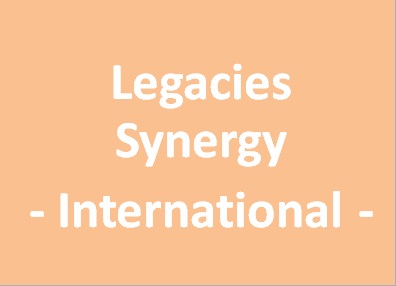
International: vingt-cinq campagnes nationales de promotion du legs solidaire
International: autres initiatives
International - Legs à finalité philanthropique: chiffres-clés par pays (lien)
______________________________
-> Suite
- International - Instances de promotion, services de support (menu principal)
- Centre de Ressources 'Legs' (menu principal)

France Générosités
- Groupe de travail Libéralités (lien)
- Département Ressources: sondages et recherches concernant l'évolution des libéralités (lien)
Agence Adfinitas (lien)
Agence Altériade (lien)
Goede Doelen
- Werkgroep Schenken & Nalaten (link)
- algemene informatie over nalaten (link)
Nederland Filantropieland
- Code Nalaten (link)
Arjen van Ketel Legacy Fundraising (lien)
Centrum nalatenschappen (link)
Instituut Goed Nalaten (link)
Kalff - Dienst Nalatenschappen (link)
IoF - Institute of Fundraising
- General information on legacies (link)
Institute of Legacy Management (lien)
Legacy Foresight (lien)
Radcliffe Consulting - Defining the future of legacy fundraising (link)
Smee & Ford (lien)
______________________________
-> Suite
- International - Instances de promotion, services de support (menu principal)
- Centre de Ressources 'Legs' (menu principal)